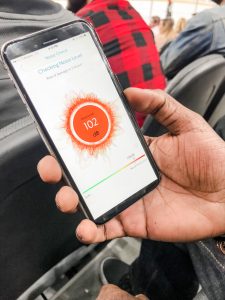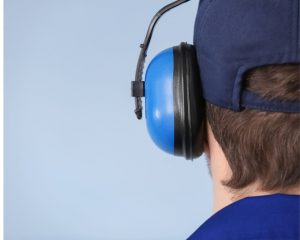Although hearing loss occurs gradually as we age, you may experience signs of hearing loss earlier if you are frequently exposed to loud noises. Noise-induced hearing loss (NIHL) is quite common. It affects individuals listening to audio devices at unsafe levels, frequenting loud venues, or spending time in noisy environments due to their day job, such as construction sites.
While exposure to some of these loud noises may be unavoidable, there are preventative measures you can take to protect your ears from noise-induced hearing loss.
Read through these tips that the team at El Dorado Hearing has put together to help individuals limit their noise exposure and help maintain their hearing levels. Follow along to learn how to protect your hearing and prevent hearing loss.

Signs of Noise-Induced Hearing Loss
Do you think you or a loved one may have noise-induced hearing loss? You may not realize your hearing is going because, with this condition, the individual’s hearing gradually worsens with more and more noise exposure. Due to the gradual hearing loss, it can go undetected — resulting in more damage being done in the meantime!
Before we outline preventative measures you can take to reduce the risks of NIHL, be on the lookout for these signs of hearing loss:
- Experiencing a ringing sensation after attending loud events
- Constantly asking others to repeat themselves in conversations
- Turning up the volume on the television or radio to unusually high levels
You may notice that these symptoms appear to correct themselves after the noise exposure. However, after repeated exposure to loud noises, the damage to the ears can become permanent.
How to Prevent Noise-Induced Hearing Loss
Luckily, noise-induced hearing loss can be entirely preventable if the proper preventative measures are taken to limit noise exposure — especially if you are frequenting loud environments. Follow these tips to protect your hearing and minimize the chance of damage.
Lower the Volume
If you have music playing or the television on a high volume, you’re at risk of hearing damage — primarily if you use headphones. Instead, make sure you are listening to your electronic devices at a reasonable level that won’t damage your hearing.
Limiting Noise Exposure
Although some individuals may work in loud environments, such as construction sites, manufacturing warehouses, or concert venues, many of us only frequent noisy environments every so often. If you frequent a loud environment often, you may experience damage to your inner ear, resulting in hearing loss.
Wear Hearing Protection

Sometimes loud environments can’t be avoided. If that is the case for you, you must take precautions to limit exposure to these loud noises. We recommend wearing hearing protection to help minimize the chance of hearing loss.
They will block out the loud sound and make it less likely that you’ll experience noise-induced hearing loss. To ensure you’re always prepared, carry earplugs in your purse or pocket so you can reach for them at a moment’s notice.
Have Your Hearing Tested by a Professional
If you are regularly in loud environments, it’s recommended that you get your hearing tested more often so your audiologist can pick up on any hearing problems early on. This will allow them to provide you with the best treatment plan to prevent further hearing loss.
Schedule an appointment with El Dorado Hearing to get your hearing tested if you:
- Have a family history of hearing loss
- Are regularly exposed to loud noises
- Have difficulty engaging in conversations
- Are constantly turning up the volume
Or, take our online hearing quiz to determine the level of assistance you need. If the evaluation concludes there is hearing loss, our team of skilled audiologists can get you fitted for hearing aids or provide you with another solution to improve or restore your hearing.
If you’re experiencing hearing loss, the skilled audiologists at El Dorado Hearing can perform a diagnostic evaluation and provide the recommended treatment and hearing devices. Contact our experienced team to schedule your hearing evaluation.




Leave a Reply